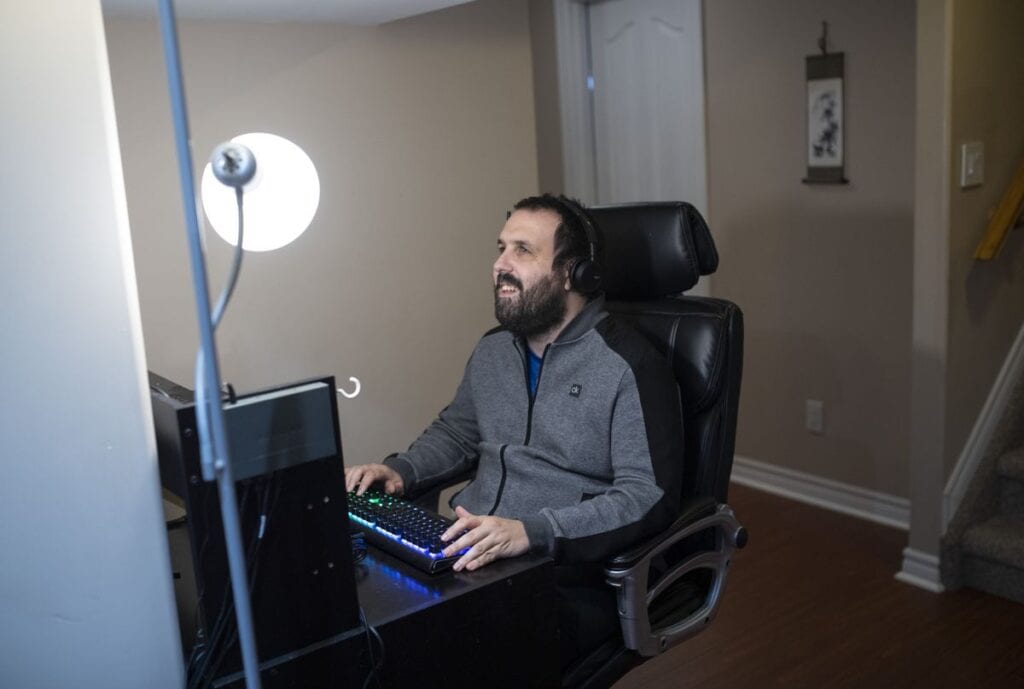Fable raises $2 million to grow crowdtesting platform for accessibility


Toronto startup seeks to make the digital world better for people with disabilities
By JOSH O’KANE
Toronto’s Fable Tech Labs Inc. wants to make the digital world better for people with disabilities by putting them at the forefront of improving it – and the startup is signing on a growing number of clients and investors in the process.
Fable tests organizations’ websites, apps and software to ensure that they’re accessible to the widest possible range of users, including those with visual and physical disabilities. To do that, Fable has built a community of “testers” who don’t just advise, but get directly involved in the design process.
“We open doors for everyone with a disability to not only consume content online, but create content and be a participant in the work force,” said Samuel Proulx, who manages Fable’s community of testers and is completely blind.
“We’ve got a diverse group of folks spread across Canada and the United States, and they use a large number of assistive technologies.”
Those technologies include screen readers for users who are blind; magnification tools for those with low vision; and switch or eye-tracking systems for persons with disabilities that affect mobility. By bringing in people who use these tools throughout the design process, Fable helps clients ensure that accessibility is built into digital experiences rather than added as an afterthought.
Since launching in 2018, Fable has signed on clients such as Walmart Inc., Telus Corp., Slack Technologies Inc., and Canada Post to bring people with disabilities into the design of those clients’ digital products. On Monday, Fable will announce a $2-million seed financing round to continue its growth, led by Toronto’s Disruption Ventures. The funding also includes participation from San Francisco’s Village Global and debt financing from the Business Development Bank of Canada.
While some companies are strengthening their digital accessibility because of government compliance standards – Ontario is increasing its standards next January – Fable chief executive officer Alwar Pillai says the companies she works with see it as an investment in reaching more people.
Statistics Canada’s 2017 survey on disability found that about one in five Canadians identified as having one or more disabilities. The country’s aging population, meanwhile, could become more prone to disabilities, as well.
“It’s not about if you’ll be accessible,” Ms. Pillai said of the future of digital products. “It’s about when you’ll be accessible.”
Ms. Pillai and her co-founder, Abid Virani, are both graduates of the Ontario College of Art & Design University’s graduate Inclusive Design program. Although Ms. Pillai had worked in user-experience design before, she said the program helped her recognize the biases she brought to her work.
The program prompted her to think about bringing people with disabilities directly into the design process. “If you don’t experience the problem, you’re not going to solve it in the right way,” Ms. Pillai said. “It’s like having guitarists design a drum set and never talking to a drummer.”
Read the full article on The Globe and Mail website (behind paywall).

Fable aims to make disability-inclusive design as simple as a service
By DEVIN COLDEWEY
Tech companies are increasingly finding that accessibility isn’t a widget you plug into an otherwise final product, but something that’s integrated from the very beginning of development — but that takes resources few possess. Fable hopes to make disability-inclusive design easier by providing testing and development assistance from disabled folks on-demand and has raised a $1.5M seed round to do it.
“The person who experiences this problem is usually the best one to solve it,” Alwar Pillai, co-founder of Fable, told TechCrunch. But that’s rarely how it works with accessibility features.
More often than not, she said, the people developing them are able and under 40. “It’s under-prioritized and incomplete,” Pillai said. “It’s not about, is this product really usable by a blind person? Businesses should be consulting with disabled folks, and Fable is a platform that connects digital teams to them so they can include them in building and testing from the get-go.”
